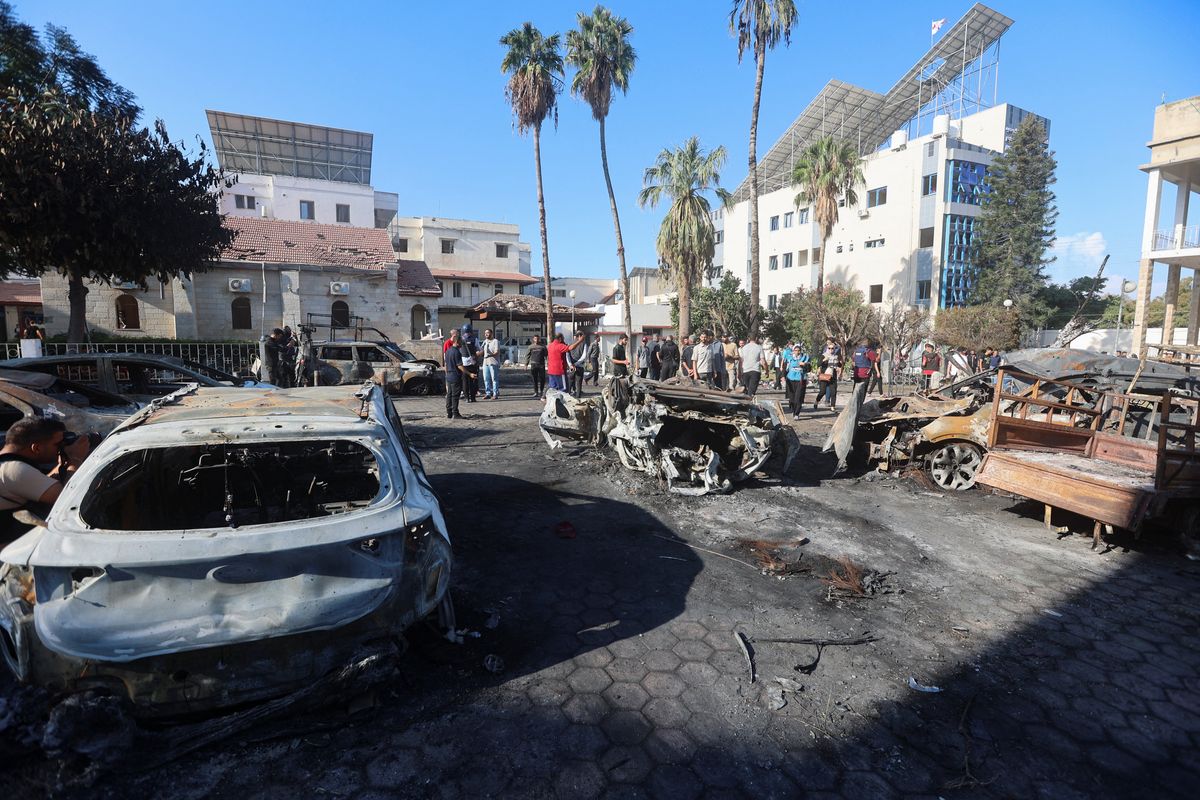Hours before US President Joe Biden set off for his trip to Israel late Tuesday, social media erupted with videos purporting to show an aerial strike on the Al-Ahli Hospital in Gaza City. The virtual battlelines formed immediately, with Hamas saying Israel had deliberately bombed the facility and killed 500 people.
Major media outlets published stories repeating the claims before Israel came out with its own version of events: A misfired terrorist rocket hit the hospital. Then came the rush to adjust those headlines and news alerts, but events had already moved well beyond their control.
Arab leaders canceled meetings with Biden, as people spilled into the streets of Beirut, Amman, Cairo, and other Middle Eastern cities following calls for a “day of rage.” Simultaneously, everyone on Twitter suddenly discovered newfound expertise on just how a guided bomb sounds as it falls or whether unburned rocket fuel could create such an explosion.
In the cold light of Wednesday morning, the story looked much different: Photographs of the blast site show a small shallow crater and around a dozen burned-out cars in the hospital parking lot. There’s only light visible damage to the hospital building itself. Gazan authorities still claim hundreds were killed, as many people were sheltering on the hospital campus.
Trouble is, the damage is done. The disinformation ruined Biden’s trip, upended the summit with Arab leaders that could have broken the humanitarian aid impasse, and deepened the divide over the war, both in and beyond the Holy Land. In another world, a successful summit might have saved thousands of lives by shortening the conflict or allowing food, fuel, medicine, and freshwater into Gaza. Instead, hearts are further hardened, and Israel is preparing a ground invasion.



















